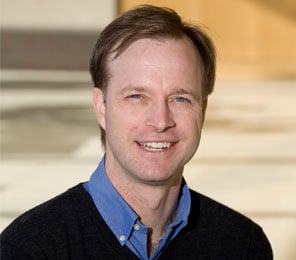On Thursdays, the Daily Voice showcases selected Thursday Morning Memos, reflective essays about clinical experiences written by faculty, alumni, residents and students of the Department of Family Medicine & Community Health and, occasionally, contributors from other departments. Thursday Morning Memos is UMass Medical School’s homegrown version of narrative medicine, in which the authors process their experiences through writing. To learn more, visit: http://www.umassmed.edu/news/articles/2011/personal_stories.aspx.
|
Thursday Morning Memos founder Hugh Silk, MD, reflects on the highs and lows of persisting with advocacy in the face of medical politics. |
 |
Climbing the Mountain
As many of you know, I am inspired to improve the oral health of our patients, fellow citizens of the commonwealth and perhaps even others across the nation. Most of my time has been spent creating educational tools for medical clinicians to utilize to improve their knowledge, skills and perhaps awareness. More and more reports from large medical institutions including the Institute of Medicine, the U.S. Department of Health and Human Services, the Pew Center and the Kellogg Foundation, are reminding us how important it is for medical practitioners to play a role in oral health because of the interconnectedness with systemic health.
Recently, I have been trying to play a role in state-sponsored programs in Kansas, Idaho, North Dakota and Pennsylvania, hoping that a team approach will be more successful. The object is to offer oral health care and education everywhere that folks go across the lifecycle—Headstart, prenatal care, schools, doctor’s offices, school-based clinics, the dentist, departments of public health, etc. However, it is always important for me to take a “time out” to ask, what am I doing in my own backyard? For instance, just this week, I made sure to have my own office get re-trained in fluoride varnish to be sure we are offering our own patients this proven preventive treatment.
So, with that in mind, I decided to enter into the foray of medical politics to see how I could engage the Massachusetts Medical Society (MMS) in oral health initiatives. How hard could it be? I already had the president of MMS on my side; I had already run a forum in January on this topic with the heads of all the key specialties and there was a unanimous decision that MMS had to do more; I had the backing of the finance committee and the public health committee at MMS. And yet, as a former government major, I knew medical politics—whether at an office level, department or hospital level and surely at a state level—could get quite thick, very quickly.
I had put forth my resolution, asked others for support (as my coach Dr. Jay Broadhurst had suggested) and took the day off to attend the annual MMS delegate hearings on resolutions. Wow—what a day. I sat through heated discussions on medical marijuana, naloxone for overdose prevention and other contentious topics. I thought the room would clear when it came to my topic. After all, how many in the room would have an opinion or any knowledge about oral health? My resolution was to ask MMS to create a task force to decide what it could do to engage its membership in learning about oral health in order to help our patients.
Suddenly there was a line to the microphone. Turns out everyone had an opinion! Few of them based on any facts. The chairman of the committee quipped, "Doesn't the body stop at the mouth?" Others stated this was a job for dentists. Some felt that the Massachusetts Dental Society should be doing this, not MMS. A few did speak on a positive note trying to explain to the delegates that indeed oral health is in our domain whether we like it or not; that money spent on this initiative would save money in the long run. I had one last minute to try to explain all of the facts, all of the data, all of the passion. It felt like trying to climb a mountain.
In the end, I was a little saddened by some of the responses, more so because they were founded in ignorance rather than a strong counter argument. But, I left the meeting feeling very good about trying to enter the medical political system. I felt listened to. Too often my pleas to the American Academy of Family Physicians and the American Medical Association have fallen on deaf ears. The MMS had at least provided a forum for my cause. I felt like the staff at MMS had helped me figure out the system; friends at our local Worcester District Medical Society had offered their support; and who knows, perhaps we have moved a step closer to some real change. I was not entirely impressed with the process; I have struggled to obey Gandhi's idea that the means are the ends in the making; in this case, the means were bumpy but important, and I am still hopeful that I will get the ends that I am seeking.